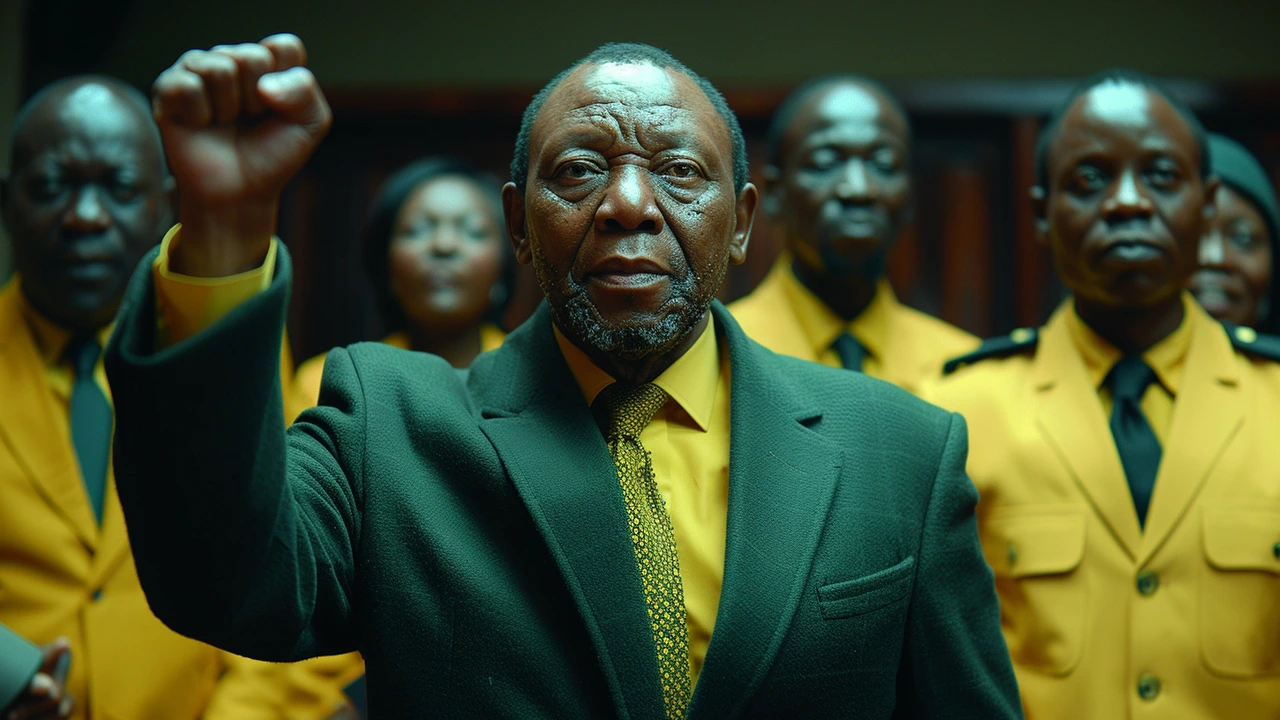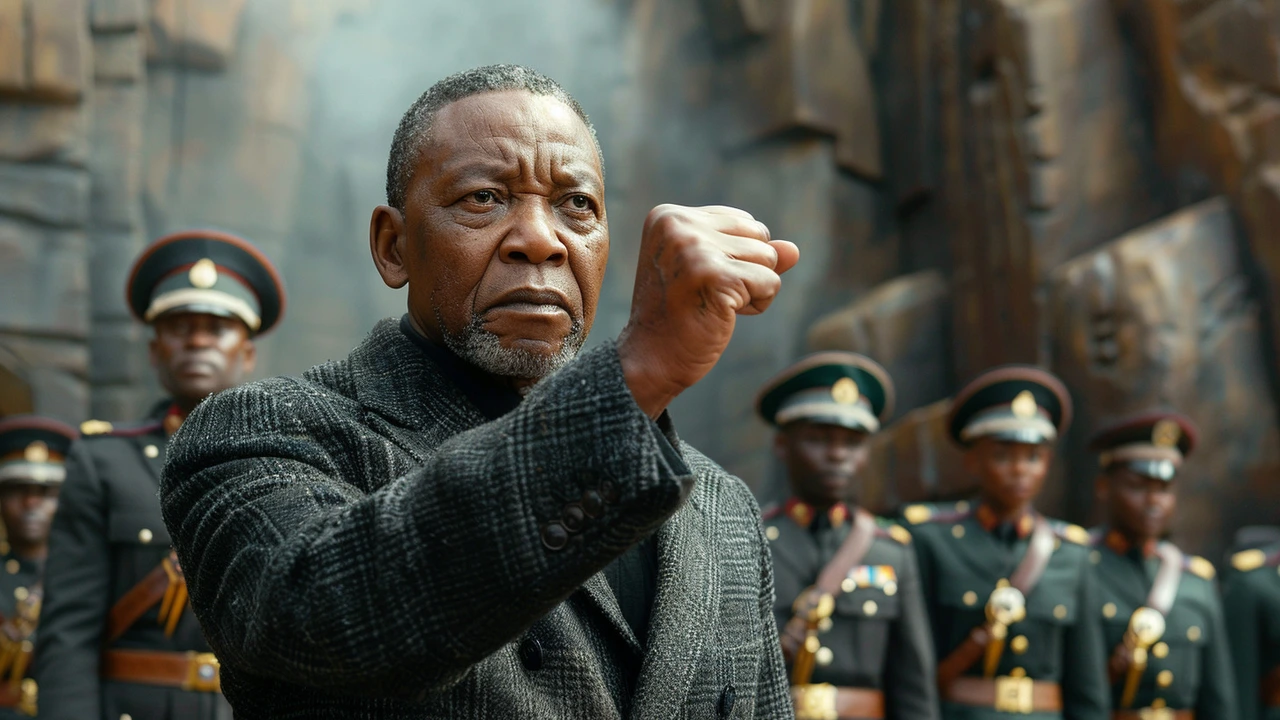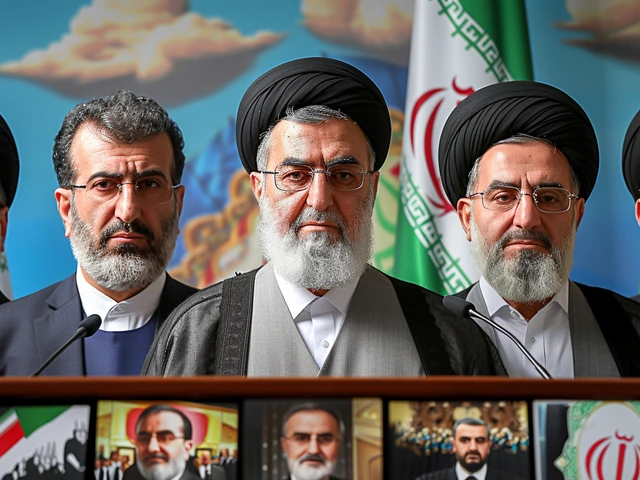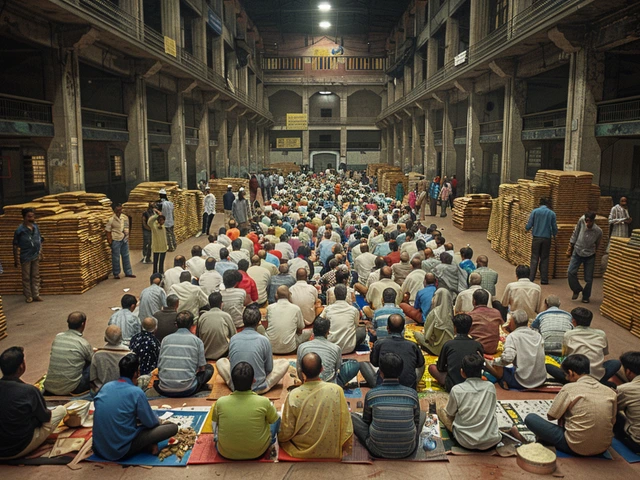On a historic day marked by a palpable sense of change, Cyril Ramaphosa took the oath of office for his second term as South Africa's president. However, this ceremony was unlike any other since the end of apartheid, happening against the backdrop of a significant political shift. The long-dominant African National Congress (ANC) lost its parliamentary majority for the first time in thirty years during the recent May elections. This development has led to the birth of a coalition government, a 'government of national unity,' reshaping the political horizons of the nation.
Creating stability out of potential chaos, the ANC, under Ramaphosa's leadership, initiated talks with formerly rival political parties. The coalition, comprising the Democratic Alliance (DA), Inkatha Freedom Party, GOOD party, and the Patriotic Alliance, is a testament to the ANC's willingness to adapt and embrace broader political diversity. The absence of an outright majority necessitated these alliances, and Ramaphosa's inaugural speech centered on the need for unity, heralding what he described as a new era for South Africa.
With the ANC’s long-standing dominance waning, many analysts are optimistic about the potential changes this coalition government could bring. There is anticipation of a more investor-friendly environment and addressing the systemic inequalities that have plagued the nation for so long. In the days following the formation of the coalition, the South African rand experienced gains, suggesting market approval of the new political configuration and the stability it promises.
Behind the scenes, forming the coalition was no simple task. The ANC had to navigate complex negotiations to secure the cooperation of its erstwhile rivals. Notably, they avoided an alliance with the Economic Freedom Fighters (EFF), whose refusal stemmed from the DA having a white leader. Furthermore, the uMkhonto weSizwe party, led by former president Jacob Zuma, refrained from joining the coalition, citing unsubstantiated claims of election irregularities. Yet, despite these challenges, the transition was peaceful, demonstrating the ANC's acceptance of its reduced influence with grace and strategic foresight.
Ramaphosa, known for his negotiation acumen, is expected to announce his Cabinet appointments soon. His success will largely hinge on whether he can maintain the integrity and functionality of this diverse coalition. Observers are keen to see how the inclusion of different political actors in governance will impact policy-making and governance in the months and years ahead.
The political shift brings to the fore questions about the future direction of South Africa. Will this unity government tackle the pressing issues of economic disparity, unemployment, and social justice more effectively? Many are hopeful that by pooling the strengths and perspectives of diverse political entities, this coalition can indeed carve a new path forward, addressing the weaknesses that a single-party dominance could not.
For ordinary South Africans, the coalition might bring a sense of renewed hope. Voters from various backgrounds contributed to this unprecedented political change, reflecting a collective desire for a government that represents all facets of South African society. In his speech, Ramaphosa acknowledged this, pledging to work tirelessly towards building a South Africa where everyone, irrespective of their background, has the opportunity to thrive.
The Impact on Domestic and International Relations
Domestically, the coalition has the potential to bridge divides and foster greater inclusiveness. The presence of parties like the DA and the Inkatha Freedom Party in the government could bring a wider spectrum of voices into the policymaking process. This inclusive approach may help address longstanding grievances and promote socioeconomic improvements.
Internationally, the formation of the unity government might enhance South Africa's standing as a stable and mature democracy. Investors often look for political stability as a key indicator of a favorable business environment. With the coalition in place, South Africa may attract more foreign direct investment, boosting its economy and providing more job opportunities for its citizens. Additionally, this new political reality may strengthen South Africa's position in international organizations and forums, allowing it to play a more influential role on the global stage.

Challenges Ahead
Despite the positive outlook, the government faces numerous challenges. Keeping the coalition intact will require continuous negotiation and compromise. The differing ideologies and priorities of the coalition partners could lead to internal conflicts, affecting the government's ability to function smoothly. Ramaphosa’s leadership and negotiation skills will be crucial in managing these dynamics and ensuring the coalition remains cohesive.
Policy implementation will also be a significant challenge. Balancing the expectations of various coalition partners while addressing critical issues such as economic reform, land redistribution, and social equity will demand careful planning and execution. The government will need to promote policies that spur economic growth while simultaneously addressing the needs of the poor and marginalized communities.
The Road Ahead
As Ramaphosa embarks on his second term amid this new political landscape, the journey ahead is undoubtedly filled with challenges and opportunities. The coalition government has the potential to bring about meaningful change and set a new precedent in South African politics. By working together, the coalition partners can address past inequalities, foster a more inclusive society, and create an environment conducive to economic growth and development.
For the people of South Africa, this historic moment is a beacon of hope. The unity government symbolizes a break from the past and the beginning of a new chapter in the country's history. With Ramaphosa at the helm, there is optimism that South Africa can navigate these uncharted waters and emerge stronger, more united, and prosperous.







Write a comment